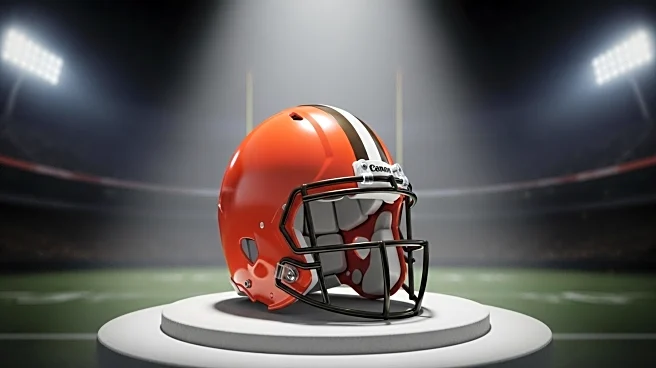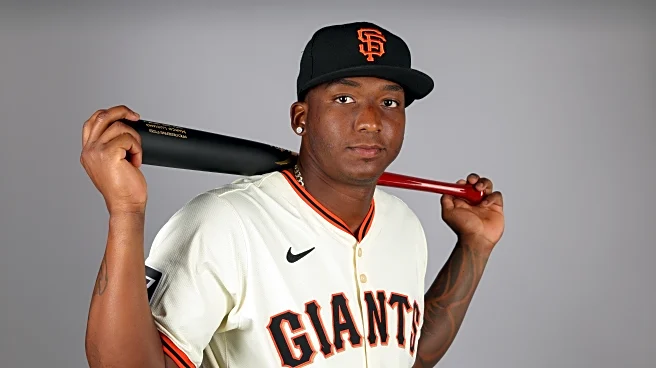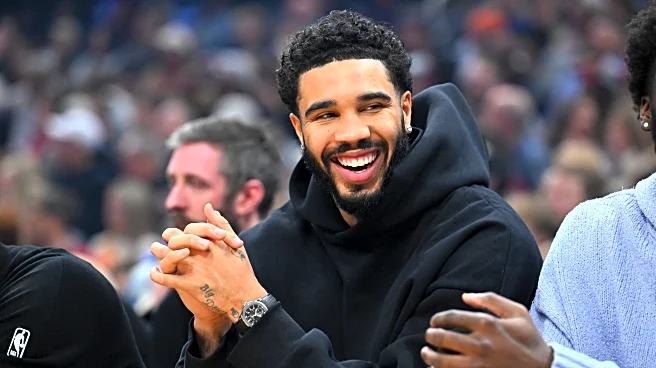What is the story about?
What's Happening?
The Cleveland Browns have decided to start rookie quarterback Dillon Gabriel in their upcoming game against the Minnesota Vikings. This decision comes after the team’s disappointing 1-3 start to the season, which included a significant loss to the Detroit Lions. Veteran quarterback Joe Flacco, who began the season as the starter, has struggled with turnovers and a low completion rate, prompting head coach Kevin Stefanski to make the change. The Browns have been facing challenges with their offensive lineup, including relying on rookie tight end Harold Fannin Jr. as their leading receiver. Despite having the NFL's top-ranked defense in terms of yards allowed per game, the Browns have been unable to capitalize offensively, leading to their current position at the bottom of the AFC North.
Why It's Important?
The decision to start Dillon Gabriel is significant as it marks a shift in strategy for the Browns, who are looking to rejuvenate their offense and improve their standing in the AFC North. This move could potentially provide the team with a fresh perspective and new energy, as Gabriel brings a different skill set to the quarterback position. The change also highlights the Browns' willingness to invest in their younger players, potentially setting the stage for long-term development. If Gabriel performs well, it could lead to a more stable quarterback situation for the Browns, who have struggled with consistency in recent seasons. The outcome of this decision could impact the team's competitiveness in the division and influence future roster decisions.
What's Next?
Dillon Gabriel will face a challenging debut as the Browns are set to play against the Minnesota Vikings in an international contest. This game will test Gabriel's ability to handle pressure and adapt to the NFL level, especially against a defense known for its aggressive blitzes. The Browns' coaching staff will be closely monitoring Gabriel's performance to assess his potential as a long-term solution at quarterback. Depending on the results, the team may continue to explore adjustments in their offensive strategy. Additionally, the Browns' management will likely evaluate their quarterback options for the next season, considering the potential need for further reinforcements.
Beyond the Headlines
The decision to start Dillon Gabriel also reflects broader trends in the NFL, where teams are increasingly willing to give young quarterbacks opportunities to prove themselves early in their careers. This approach can lead to faster development and adaptation to the league's demands. However, it also comes with risks, as young players may struggle under the pressure of high-stakes games. The Browns' choice to promote Gabriel could influence other teams facing similar quarterback dilemmas, potentially leading to a shift in how franchises manage their quarterback rotations.
















